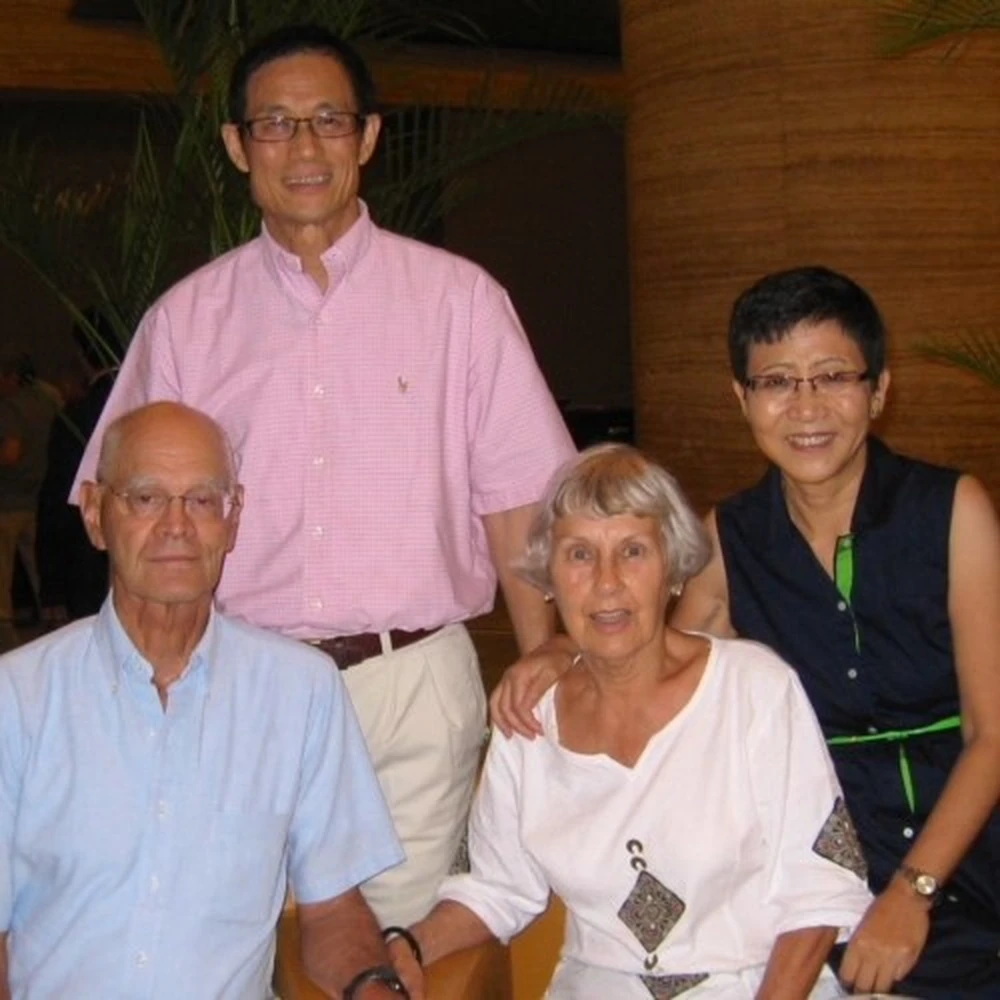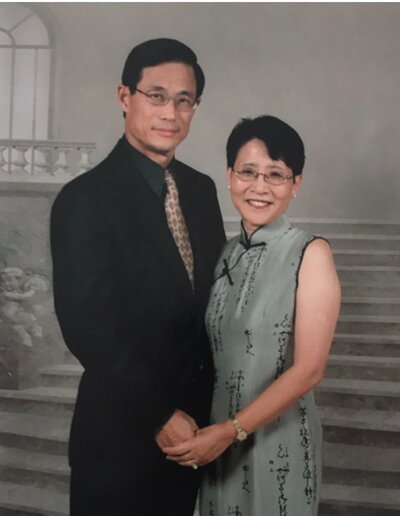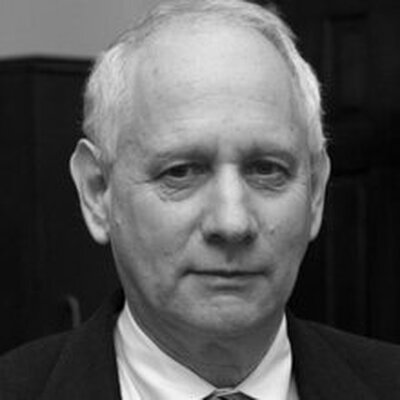
By Tracy Crane, Department of Chemistry
Reflecting on successful chemistry careers, Illinois alumni Dr. De-kai Loo and Dr. Jianjian Zhang credit two chemistry professors, Gary Schuster and the late Peter Beak, with guidance and encouragement that was instrumental in their success as international graduate students from China.
“Despite numerous challenges, including not speaking any English, we have fulfilled our American dream,” Loo said. “Looking back at our journey, the opportunities and support that Professor Schuster and Professor Beak gave us during the most critical time are invaluable.”
In honor of their PhD advisors, Loo (PhD, ’87, Beak) and Zhang (PhD, ’89, Schuster) established a scholarship in the name of each professor.
The Professor Peter Beak Graduate Travel Scholarship provides travel funds to graduate students for academic purposes, and the Professor Gary Schuster Mentoring Scholarship recognizes graduate students who demonstrate outstanding mentorship of undergraduate students.
Beak was a professor of chemistry at Illinois from 1961 to 2008 and Schuster was a professor of chemistry at Illinois from 1975 to 1994.
“We gave to pay it forward,” said Loo, whose education in China was interrupted by what is referred to as the Great Cultural Revolution that lasted from 1966 to 1978, following the death of Mao Zedong, leader of the revolution, which forced the closure of schools and universities.

Loo was attending Peking University and Zhang was attending Shanghai Chemical Institute in the late ‘60s when the revolution was beginning.
“After graduation we were sent to a remote area to be re-educated by workers, peasants, and soldiers under Mao’s order for thirteen years, during which we were only allowed to do hard labor work,” Loo explained.
A few years after the cultural revolution ended, they got the opportunity to come to the United States to pursue graduate studies. By then, they were in their late 30s.
“We had little English capability and rusted knowledge in chemistry,” he said.
Loo began his graduate studies at UIUC in 1983, and Zhang started her PhD studies a year later.
With hard work and determination and consistent support from Beak and Schuster, Loo and Zhang both excelled. And both received Fuson Travel Awards, which are awarded annually to organic students, giving them the opportunity present their research at the American Chemical Society National meeting while PhD students.
“Dr. Beak and Dr. Schuster gave us invaluable help in our graduate study and research,” Loo said, recalling a specific example of Professor Beak’s support when he helped Loo prepare his presentation for the annual ACS meeting in 1986. “At that time, I had only been in the U.S. for three years with very limited verbal communication skills and no presentation experience. Professor Beak worked with me slide by slide to make sure I had a successful presentation.”

Photo credit: Georgia Tech News Center
Loo said Beak truly devoted all his life to education.
“There were many occasions during my graduate study where his teaching, guidance, mentoring and support were invaluable,” Loo said.
Loo graduated with a PhD in organic chemistry in 1987, and Zhang graduated with her PhD in organic chemistry the next year. Both were hired at Hercules Inc. and went on to successful careers as chemists. Loo retired in 2011 with 14 patents published, and Zhang retired in 2010, also with 14 patents published.
After graduating from UIUC, Loo and Zhang got together with Prof. Beak on several occasions.
“Dr. Beak’s first question to me was always ‘How can we further improve the graduate program at the Department of Chemistry?’” Loo recalls him asking. To establish these two funds for Illinois chemistry graduate students is not just a way to honor the professors who were dedicated to chemistry education and instrumental in their lives, according to Loo.
“It is also a way to help in improving the graduate program at the Department of Chemistry,” he said.